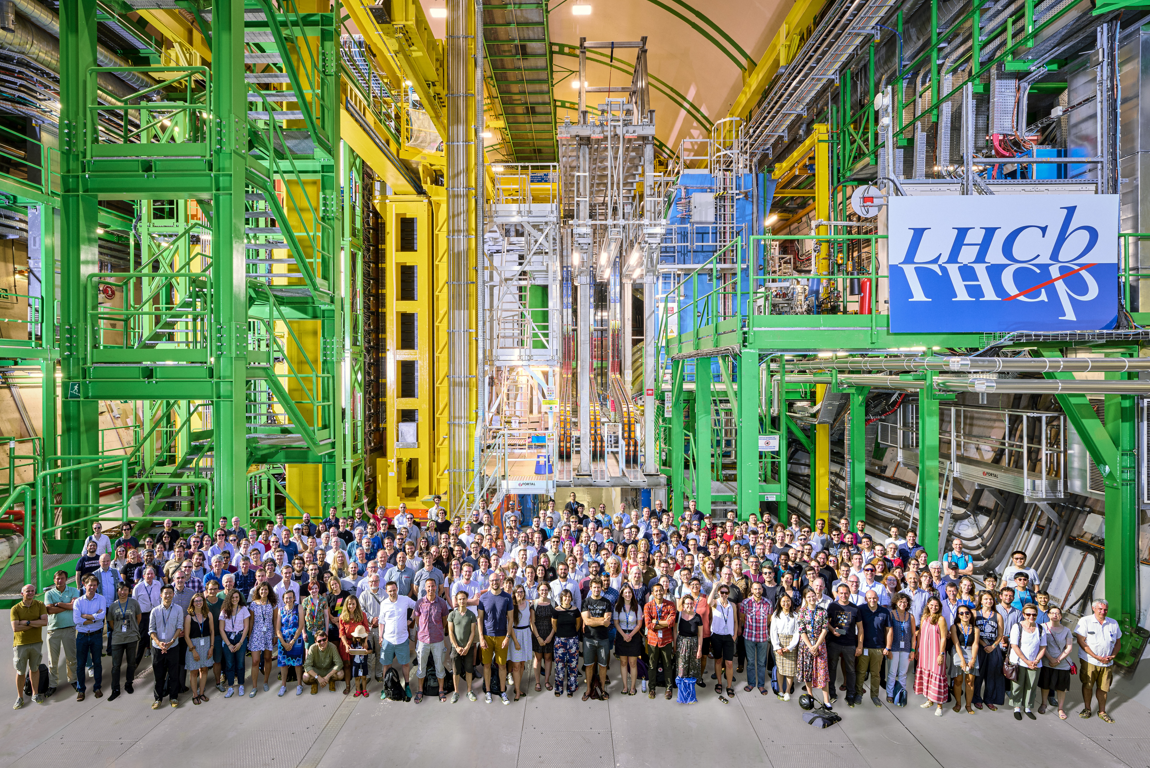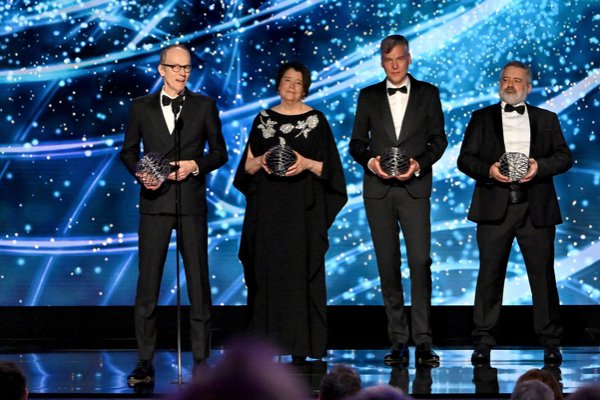The LHCb experiment at the Large Hadron Collider (LHC) - a scientific collaboration involving teams from the Faculty of Physics and the Institute of Cosmos Sciences of the UB (ICCUB) - is one of the projects awarded the prestigious Breakthrough Medal in Fundamental Physics, one of the most important scientific recognitions in the world. The award ceremony, popularly known as the Oscars of Science, took place last Saturday, April 5, in Los Angeles (United States) and was awarded by the Breakthrough Prize Foundation.
Overall, the award distinguished the collaborative projects LHCb, Alice, Atlas, and CMS, which bring together thousands of researchers from over 70 countries. The scientific contributions of the awarded projects have been decisive in advancing detailed measurements of the Higgs boson, the discovery of new particles with strong interaction, the study of rare processes, and the asymmetry between matter and antimatter, among other concepts.
As explained by Fabiola Gianotti, Director-General of CERN, "the award is a recognition of the collective effort, dedication, competence, and intense work of thousands of people around the world who push the limits of human knowledge every day." The prize, endowed with three million dollars, will be donated to the CERN & Society Foundation and will be used for scholarships for doctoral students from the member institutes of the collaborations, so they can conduct research stays at CERN.
LHCb: Asymmetries and Antimatter in the Universe
The LHCb (Large Hadron Collider beauty experiment) experiment at the Large Hadron Collider (LHC) is based at the European Organization for Nuclear Research (CERN) in Switzerland. "The 2025 Breakthrough Prize is a great honor for the LHCb collaboration. It highlights the importance of the numerous measurements made by the LHCb experiment in the field of flavor physics and spectroscopy by exploring subtle differences between matter and antimatter and discovering various new hadrons of heavy quarks," said Vincenzo Vagnoni, spokesperson for LHCb.

Professor Carla Marín, a member of the UB team participating in the LHCb experiment, emphasizes that "it is a recognition of the continuous and collaborative work carried out over many years, and especially of teamwork as a key tool to tackle the great challenges of current science. More specifically, in the field of experimental particle physics where we need large accelerators and detectors that require the joint work of teams from around the world."
"In the framework of the experiment, we have made great discoveries with the data from Run 2 (the data-taking period from 2015 to 2018) and many more are yet to come with the large amount of data we are accumulating in Run 3. All this is a motivation to continue with our cutting-edge research," concludes the researcher, who has obtained a starting grant from the European Research Council (ERC).



